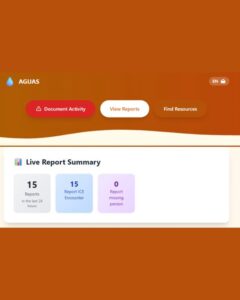A Growing National Security Debate in the U.S.
A fierce national debate is heating up across the United States over one controversial question: Should China be forced to give up the roughly 384,000 acres of American farmland it owns — and be banned from ever buying more?
As tensions between Washington and Beijing continue to rise, lawmakers, farmers, and national security experts are voicing growing concern over foreign ownership of U.S. agricultural land — especially by nations considered strategic adversaries.

🇺🇸 The Numbers Behind the Controversy
According to the U.S. Department of Agriculture (USDA), Chinese investors own an estimated 384,000 acres of farmland, forest, and other agricultural property across the country. While that’s less than 1% of all foreign-held farmland, critics argue it’s not the amount that matters — it’s who owns it and where.
Several of these properties sit near military bases, critical infrastructure, and food production hubs, prompting bipartisan worry in Congress. States like Texas, Florida, North Dakota, and Montana have already introduced or passed legislation restricting land purchases by foreign governments or companies linked to China.
⚠️ Security or Sovereignty?
National security experts warn that Chinese ownership of U.S. farmland could pose risks beyond economics. Some fear that it could give China access to critical food supply chains, agricultural technologies, or surveillance opportunities near sensitive military sites.
“Food security is national security,” said Sen. Jon Tester (D-MT), who co-sponsored a bill to ban Chinese ownership of U.S. farmland. “We can’t allow foreign adversaries to control the land that feeds our people.”
Supporters of tighter restrictions also point to a 2022 incident in Grand Forks, North Dakota, where a Chinese-owned company’s plan to build a corn mill just 12 miles from an Air Force base was blocked after a national outcry and intelligence reviews.
💬 The Case Against a Ban
Not everyone supports an outright ban. Some economists and agriculture advocates argue that foreign investment — including from China — helps keep rural communities alive by injecting capital into struggling farming regions.
They also note that Canada and the Netherlands own far more American farmland than China does, but have faced far less scrutiny. Critics of a ban say it risks turning legitimate economic concerns into political fearmongering.
“Let’s be clear — 384,000 acres is a drop in the bucket compared to total U.S. farmland,” said one agricultural analyst. “We should focus on transparency and regulation, not blanket bans that could hurt farmers trying to sell their land.”
🏛️ Legislative Momentum
Despite differing opinions, momentum is building in Washington. Multiple bills are now circulating in Congress that would:
Prohibit China, Russia, Iran, and North Korea from purchasing U.S. agricultural land. Force divestment of existing holdings if tied to foreign governments. Increase oversight by the Committee on Foreign Investment in the United States (CFIUS).
Several states have already moved ahead of federal lawmakers, imposing their own restrictions and requiring foreign buyers to disclose more information.
🌾 What’s at Stake
The debate ultimately comes down to two fundamental questions:
Who should control America’s farmland? How do we balance openness with security?
As global tensions mount and food production becomes increasingly strategic, the answer may define how the U.S. protects both its sovereignty and its economy in the decades ahead.
For now, one thing is certain: the issue of Chinese-owned farmland has become more than a matter of acres and dollars — it’s a test of how America defines control of its most vital resource.






















































